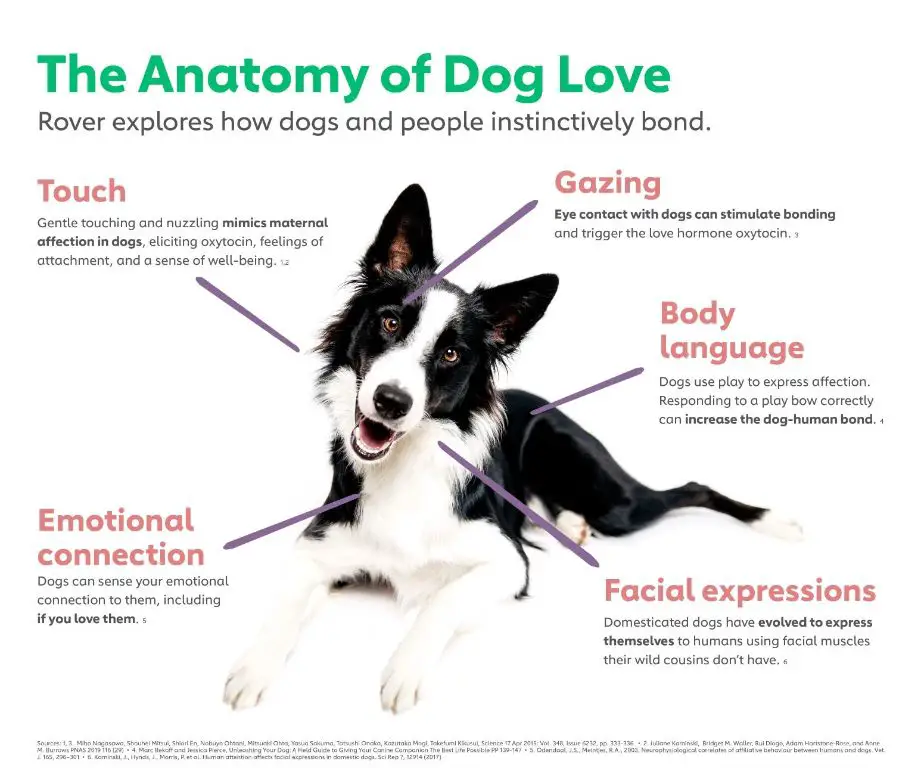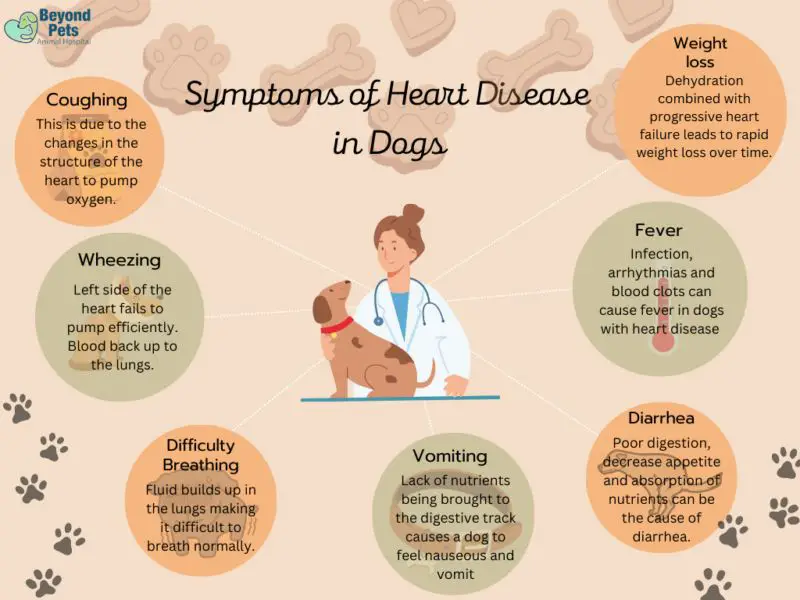Introduction
It’s no secret that dogs bring joy to many people’s lives. From providing affection and companionship to encouraging exercise, dogs can have significant benefits for human health and happiness. While the emotional bond between dogs and their owners is clear to most pet parents, research is backing up these benefits scientifically. Studies show that interacting with dogs leads to the release of endorphins, neurotransmitters that enhance mood and relieve stress. Dog ownership is correlated with lower blood pressure, decreased anxiety, and protection against depression. There are even cardiovascular and mental health benefits associated with having a dog. Of course, owning a dog requires responsibility and effort. But overall, science confirms what dog lovers already know: dogs make you happier.
Dogs Provide Social Support
As social creatures, humans have an innate need for companionship and affection. For people of all ages, dogs can fulfill social needs by being affectionate companions. Dogs are always excited to see their owners, providing unconditional love and comfort. Their playful and loyal nature allows for bonding and connection.
Playing and interacting with dogs has been shown to release oxytocin, also known as the “love hormone,” in both dogs and their owners. Oxytocin contributes to feelings of calmness, well-being, and attachment. The act of petting a dog can also result in an oxytocin release. By promoting this hormone, dogs help people feel happier and more connected.

Dogs Reduce Stress
One of the main reasons dogs make people happier is because they help reduce stress. The comfort and companionship provided by dogs has been shown to lower cortisol levels and blood pressure in their owners. Cortisol is a hormone released in response to stress, so lower levels indicate a more relaxed state.
Petting a dog can trigger the release of oxytocin, serotonin, prolactin and dopamine – all hormones associated with happiness and wellbeing. The act of stroking a dog is soothing and calming for both the dog and human. Numerous studies have shown that interacting with a dog decreases anxiety and provides a mood boost. The relaxing presence of a dog can lower anxiety in stressful situations and help their owners feel more at ease.
Dogs are especially adept at sensing human emotions and providing comfort when their owner is stressed. Their ability to empathize and provide unconditional support makes them excellent therapy dogs for anxiety, PTSD, hospitals, disaster relief and more. The companionship of a dog can help people relax and feel less alone during difficult times.
Dogs Encourage Exercise
Dog ownership can provide a significant boost to your fitness levels. Numerous studies have shown that owning a dog motivates people to get outside and exercise more often. Dog owners are much more likely to meet recommended activity levels than those without a canine companion.
One key reason that dogs encourage more exercise is because they require daily walks and time outdoors. As pack animals, dogs enjoy and benefit from frequent walks and exercise. Dog owners find themselves taking long strolls through the neighborhood each day, just to meet the needs of their pet. This daily requirement helps ensure you get outside and moving on a regular basis.
In addition, dogs offer motivation and companionship for physical activities. Their excitement and energy rubs off on owners, who are then inspired to be more active. Going for a run or hike is a lot more fun with your eager four-legged workout buddy. Dogs make great exercise partners, adding some enthusiasm and encouraging you to keep moving. Their presence provides a convenient reason to take fitness outdoors and make it more enjoyable.
Research shows that dog owners get more exercise and are more physically active than people without pets. One study found that dog walkers met recommended activity levels more often than those who didn’t walk dogs. Other studies show dog owners spend more time engaged in mild, moderate and vigorous physical activity. So welcoming a dog into your life is likely to help you get more active and healthier. Their companionship makes fitness more appealing, while their needs motivate owners to walk more each day.

Dogs Improve Cardiovascular Health
Multiple studies have shown that owning a dog provides significant cardiovascular benefits for their human companions. Dog owners tend to have lower blood pressure, healthier cholesterol levels, and a reduced risk of heart disease compared to non-dog owners.
One major study followed over 3 million adults in Sweden for 12 years. It found that dog owners had a 20% lower risk of dying from cardiovascular disease and a 24% lower risk of death from any cause compared to people without dogs. Other studies have reported similar protective effects against heart conditions like atrial fibrillation, heart failure, and stroke.
Researchers believe that dogs improve heart health in a variety of ways. Walking and playing with dogs leads to more physical activity, which strengthens the heart muscle and lowers blood pressure. The companionship of a dog also reduces stress and loneliness, both of which are risk factors for cardiovascular disease. And taking care of a dog encourages more social contact and support from others.

The positive cardiovascular effects are especially pronounced among elderly adults and those living alone. But dog ownership benefits heart health across all ages. Simply petting a dog can lower blood pressure and cholesterol in the short-term as well. So both owning and interacting with dogs seems to provide protective effects against heart disease.
Dogs Help Mental Health
Dogs can provide a wide range of mental health benefits for their owners. Caring for a dog helps alleviate depression and loneliness by providing companionship and unconditional love. Petting a dog can increase levels of serotonin and dopamine, which are neurotransmitters related to happiness and wellbeing. The act of caring for a dog also gives a sense of purpose and meaning, which contributes to overall life satisfaction. Spending time with and caring for a dog creates a routine and structure that can help manage depression. Dogs also make it easier for their owners to meet people and make connections, combatting isolation. With their playful and affectionate nature, dogs keep their owners in a positive mindset and elevate their mood. Studies have found that pet owners have lower rates of depression than non-pet owners. The mental health benefits dogs provide make them great emotional support animals for people struggling with mental health issues like anxiety, PTSD, and more. Having a dog around constantly supplying affection helps stabilize moods and manage difficult mental health symptoms.
Challenges of Dog Ownership

While the benefits of dog ownership are numerous, bringing a dog into your life also comes with challenges. Dogs require a significant investment of time, money and responsibility. Providing proper care and attention for a dog takes consistent effort.
Dogs need to be fed, exercised, groomed and given love and affection daily. This can be difficult for people with busy schedules or frequent travel commitments. Dogs also require training, veterinary care and sometimes professional behavioral intervention, all of which cost money. Additionally, finding housing and travel accommodations that allow dogs can be challenging.
Caring for a dog is a long-term commitment. Dogs typically live 10-15 years, during which they rely entirely on their human caretakers. Not everyone is ready to make such an extensive commitment. While dogs provide joy and comfort, prospective owners must seriously evaluate if they can provide everything a dog needs for their whole life before adopting.
Breed Considerations
Different breeds have different activity levels and care needs. For example, a border collie or husky will require much more exercise than a pug or bulldog. Large breeds like great danes have shorter lifespans and more joint issues than smaller dogs. Long-haired breeds like golden retrievers need daily brushing to prevent mats, while short-haired dogs only require occasional brushing. Potential allergy issues also vary by breed. In general, hypoallergenic dogs that shed less like poodles and bichon frises cause fewer allergic reactions than heavy shedding dogs like labs or german shepherds. It’s important to research different breeds’ characteristics and find one that matches your lifestyle and activity level. Adopting a high energy dog when you live a sedentary lifestyle will cause stress for both you and the dog. Seek advice from your local shelter or breed-specific rescue groups to find the right match.
Adopting vs. Buying
When looking to add a dog to your family, you have the choice to adopt from an animal shelter or buy from a breeder. There are compelling reasons to consider adopting a shelter dog.
One of the main benefits of adopting a dog from a shelter is that you are providing a home to a dog in need. Millions of healthy, friendly dogs are euthanized in shelters each year simply because there are not enough adopters. By adopting, you are quite literally saving a life.
Many shelter dogs are adults over 6 months old who have often already been house trained. An adult dog allows you to better predict size, energy level and temperament. Puppies are cute but require much more time and patience.
Mixed breed dogs from shelters tend to have fewer health issues than purebreds who can be prone to genetic conditions. Mixed breeds demonstrate “hybrid vigor” meaning increased health and hardiness.
Adopting is also the more ethical choice and does not support puppy mills or irresponsible breeding practices. Puppy mills treat dogs like products and often keep them in overcrowded and unsanitary conditions. They focus on profits over the wellbeing of dogs.
When you adopt, you save a deserving dog, avoid supporting unethical breeding, and get the gift of a loving companion.
Conclusion
In conclusion, there is significant research demonstrating the various ways dogs can improve human happiness and wellbeing. From providing social support and stress relief, to encouraging exercise and improving cardiovascular health, dogs offer many benefits. Their positive impact on mental health has also been well documented, from alleviating depression to reducing feelings of loneliness and isolation. Although dog ownership also comes with its challenges, such as financial requirements and time commitments, for many people the companionship and joy of having a dog in their lives outweighs the difficulties. With careful consideration of breed suitability and the decision to adopt rather than buy, dog ownership can be a enriching and fulfilling experience. Overall the evidence clearly shows that dogs can have measurable, scientifically-proven effects on improving human happiness.